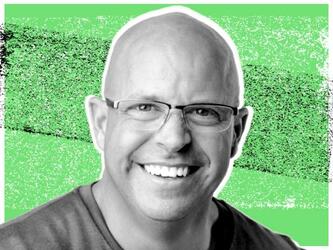Alain de Botton in seven
1. You have established a career explaining philosophy to the general population – do you believe we don’t think deeply enough about everyday situations?
Alain de Botton: My career isn’t really about explaining philosophy; it’s about examining a range of emotional disturbances with the help of culture – including philosophy and many other sources. In general, we are extremely unknown to ourselves, which leads to all kinds of problems: we marry the wrong people, make the wrong job choices and can’t understand many of our feelings. A process of self-examination and introspection would help us all – but our culture is fatefully in love with distraction.
2. The rise of mindfulness – useful or useless?
AdB: Mindfulness isn’t my project – to caricature wildly, I’m more interested in examining feelings and unpacking them, than in emptying the mind. That said, anyone doing mindfulness has their heart and soul very much in the right place.
3. Is it important to know oneself to have a happy life and a successful career?
AdB: Know yourself was the entire advice of Socrates to his friends; so yes, it’s pretty key. All the great errors are, at heart, failures of self-knowledge.
4. You have said people need to be nuanced when judging success (and failure), can you explain how that can be applied to one’s own career?
AdB: We can’t be a success at everything, and in almost everything there will be a high degree of mediocrity. The trick is to learn to tolerate ourselves despite our many failures. It can be too easy to hate oneself and all one has done – and not done. Self-acceptance is a major virtue.
5. Is the fear of failure exacerbated in this age of social media and extensive public sharing?
AdB: The fear of failure has always been horrendous; it got even worse because of modern capitalism, which expects too much of all of us. Social media, it’s not the prime culprit, no. Individualism has that crown!
6. One of the areas you have focused on has been architecture and the importance of beauty in our buildings – how does that relate to our working environments and happiness at work?
AdB: Most offices, for obvious reasons, pack us in and make us very uncomfortable all day; we have no privacy and, often, even the toilet doors are too thin. It’s pretty taxing for introverts. It would be great to have offices with doors again.
7. Which ancient philosopher do you most empathise with, and why?
AdB: I’m really interested in Plato’s project to reform humanity through education – and his desire to seduce vast numbers of people to take part in a big intellectual project. That’s what I’m modestly trying to do with The School of Life.

We hope you enjoyed this article.
Research Live is published by MRS.
The Market Research Society (MRS) exists to promote and protect the research sector, showcasing how research delivers impact for businesses and government.
Members of MRS enjoy many benefits including tailoured policy guidance, discounts on training and conferences, and access to member-only content.
For example, there's an archive of winning case studies from over a decade of MRS Awards.
Find out more about the benefits of joining MRS here.











0 Comments